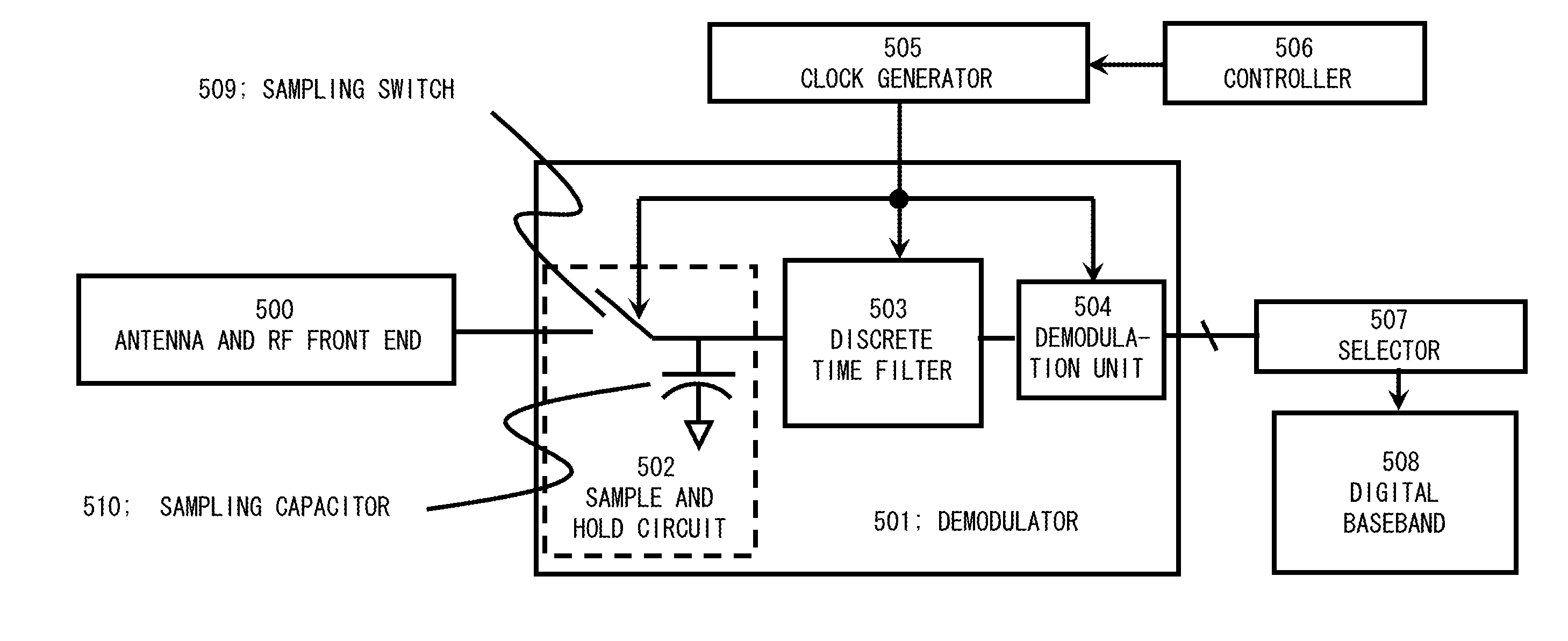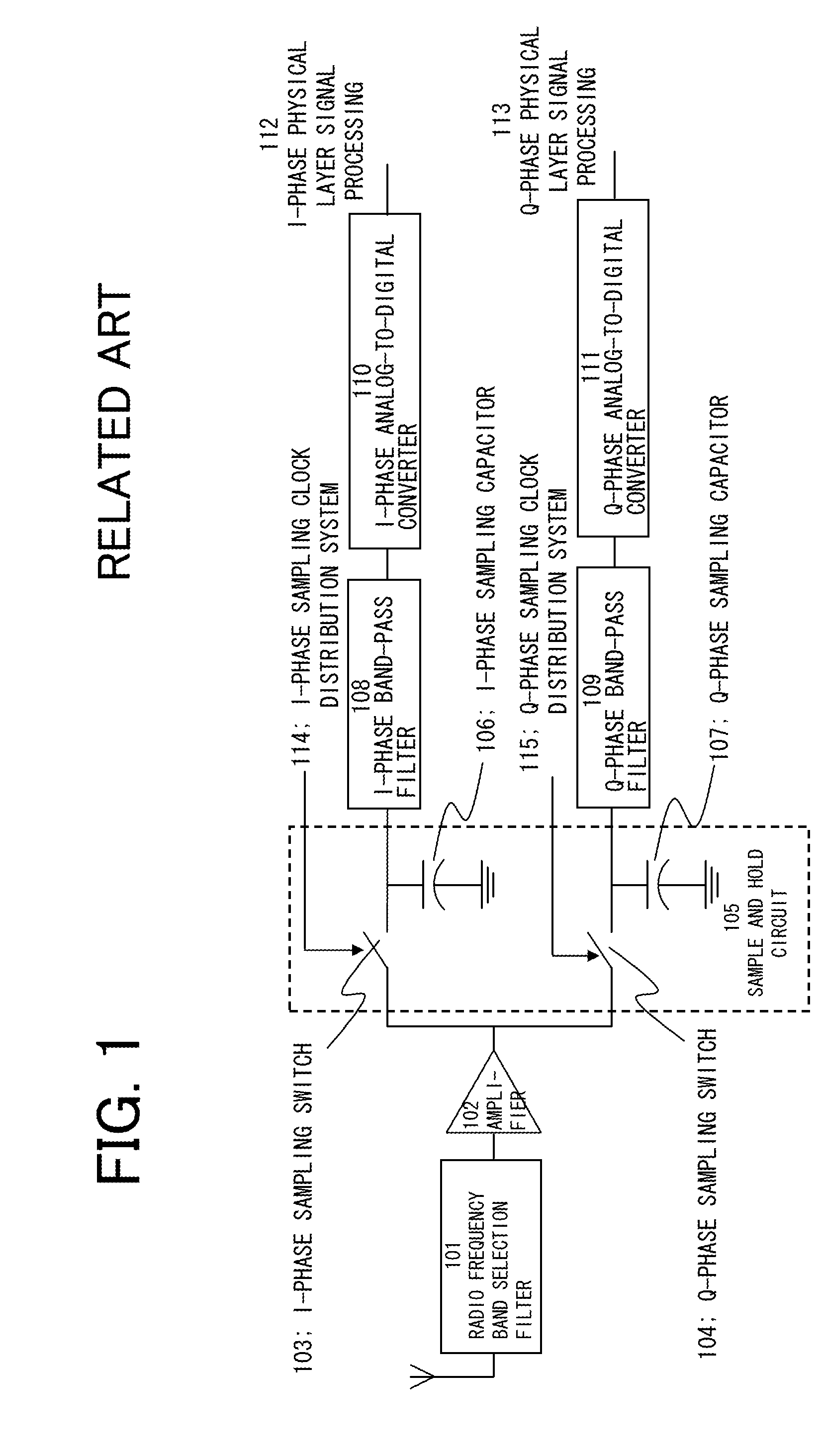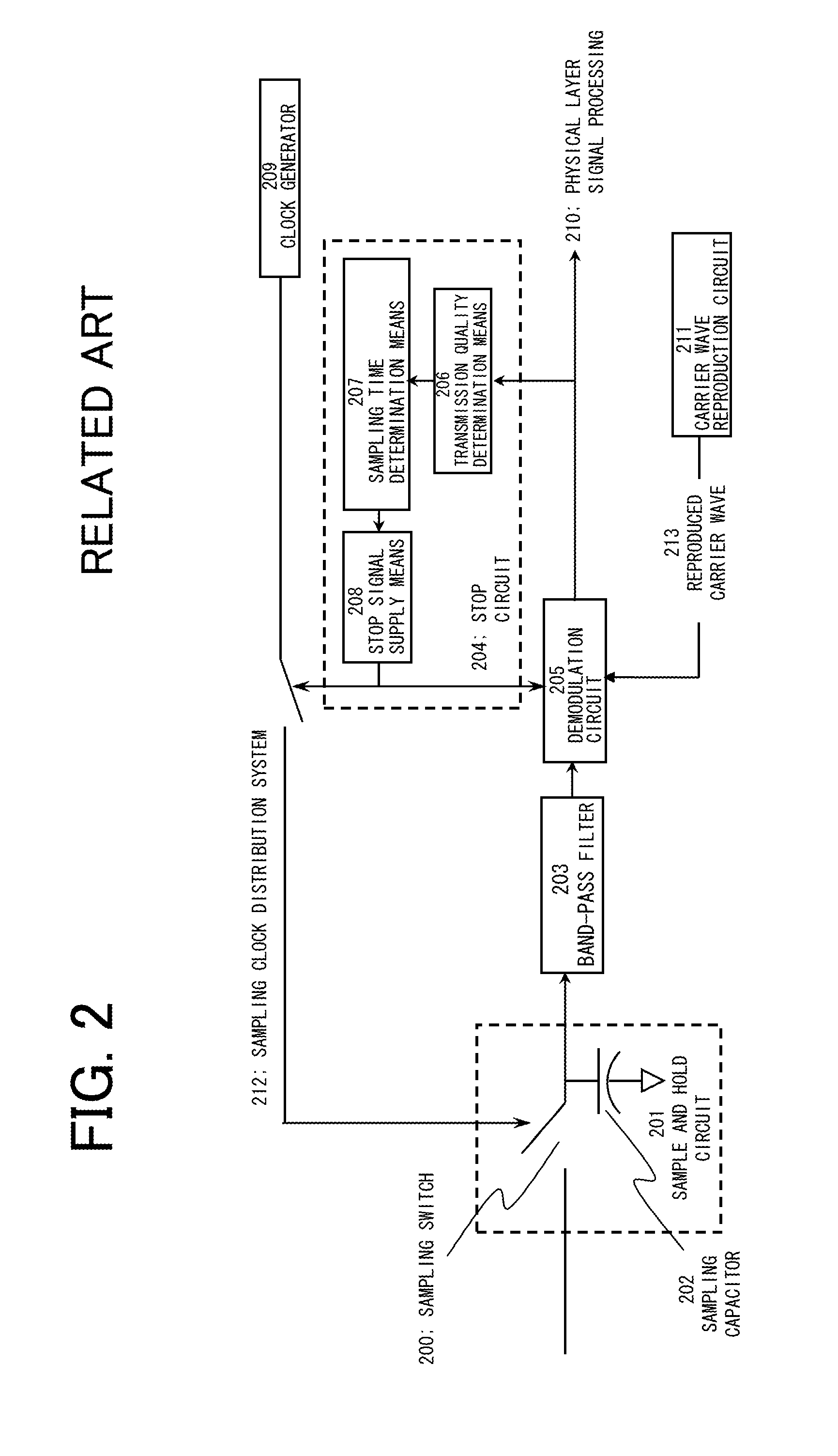Receiver apparatus and reception method
a receiver and receiver technology, applied in the field of digital wireless receivers, can solve the problems of difficult to handle a complex modulated signal, risk of oscillation, and the filter may become an unstable filter, so as to reduce the chip area and power consumption of the receiver apparatus, reduce the waste of excessive flow, and achieve large-capacity communication.
- Summary
- Abstract
- Description
- Claims
- Application Information
AI Technical Summary
Benefits of technology
Problems solved by technology
Method used
Image
Examples
Embodiment Construction
[0111]Exemplary embodiments of the present invention will be described. A digital radio receiver according to the present invention includes a sampler circuit (502), a demodulator (504), and a discrete time filter (503). The sampler circuit (502) receives and samples an FDM (Frequency Division Multiplexing) signal obtained by multiplexing a plurality of subcarriers f1, f2, . . . and fN on a frequency axis to perform sampling in order to increase the number of data per symbol with respect to a 2-ary (binary) modulation (BPSK, BFSK) using a single carrier wave that has been used in a weak radio frequency band. The demodulator (504) completes demodulation of a particular subcarrier f1 for the FDM signal within a short period of time (within one symbol data period), and then switches a frequency for the demodulator to a frequency for the different subcarrier f2, and completes demodulation of the subcarrier f2 within the short period of time, as in the case of the subcarrier f1. The disc...
PUM
 Login to View More
Login to View More Abstract
Description
Claims
Application Information
 Login to View More
Login to View More - R&D
- Intellectual Property
- Life Sciences
- Materials
- Tech Scout
- Unparalleled Data Quality
- Higher Quality Content
- 60% Fewer Hallucinations
Browse by: Latest US Patents, China's latest patents, Technical Efficacy Thesaurus, Application Domain, Technology Topic, Popular Technical Reports.
© 2025 PatSnap. All rights reserved.Legal|Privacy policy|Modern Slavery Act Transparency Statement|Sitemap|About US| Contact US: help@patsnap.com



